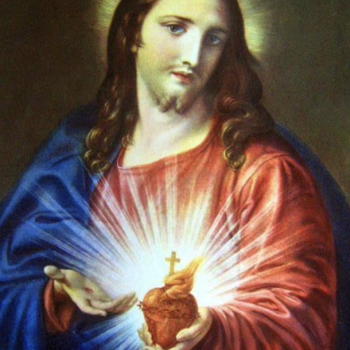 A reader recently read about my decision to join the Catholic church and wrote me a message expressing their concern about the issue of Justification vs Sanctification and how the Catholic church differs from the protestant church on this issue. I thought I would take some time to respond to the concerns and share it with you, just in case other readers are having similar concerns.
A reader recently read about my decision to join the Catholic church and wrote me a message expressing their concern about the issue of Justification vs Sanctification and how the Catholic church differs from the protestant church on this issue. I thought I would take some time to respond to the concerns and share it with you, just in case other readers are having similar concerns.
First of all, thanks for writing. I am touched by the many people that have written to me with concerns about my shift towards Catholicism. I am so blessed to have people who are thoughtful in their responses and caring in their critiques.
Justification has been a huge issue in the western church since Augustine took Pelagius to task over 1500 years ago, and has been a particularly big deal since Luther (an Augustinian monk) kick started the reformation surrounding just this issue. It was a huge issue for me a number of years ago as well, and only was resolved as I studied the concepts of Sanctification and Justification in light of the historical Church’s understanding of these concepts.
Western Christians often talk about God’s work of salvation as being a three part process:
- Justification – From the Greek δικαιόω found in Romans 3:24 meaning to be rendered or pronounced as one ought to be. There is no concusses on exactly what this means, in my old Lutheran background the emphasis was placed on the declarative action of God says that the sinner is Just. Much of the conflict of terms comes from different understandings of what Paul was talking about when he used this word.
- Sanctification – Taken from Hebrews 12:14 which states, “Pursue… the sanctification without which no one will see the Lord.” This word comes from the Greek ἁγιασμός meaning “consecration, purification” and is related to the Hebrew word קדש which refers to that which is set apart. This often talked about as the work of the Holy Spirit in a person’s life to make them look more and more like Jesus.
- Glorification – This concept is linked with 1 Corinthians 15:42-53 which talks about bodies that are ἀφθαρσία, meaning they are incorruptible and pure. It’s what is said to happen to people when they finally enter into heaven.
For many protestants salvation is simple a juridical declaration where God’s wrath is simply satisfied and God sees Christ instead of me (this understanding is tied up with late-medieval feudal soteriology developed by Anselm of Canterbury and modified by the Reformers). In this way of thinking God is able to declare a person justified and in doing so free them from hell by removing the judicial penalty for sin.
This view of salvation is too small.
Even before I decided to become Catholic I discovered many theologians throughout the history of the church do not think of Justification, Sanctification and Glorification as separate realities, but rather different ways of talking about the single working out of our salvation.
In order for me to be fully “saved” I need to be totally healed. The Greek word used in scripture for “save” is σῴζω meaning “to save, make whole, heal, be whole”. If my will and actions are not in line with God’s will and actions; I am not fully saved. If I still desire to sin; I am not fully saved. In every way that I reject God in my heart, actions, and desires I demonstrate a NEED for salvation.
Jesus is not primarily reconciling us to God on the cross, he is primarily reconciling God to us. It’s not that God can’t choose to love us and heal us because of our sin, it’s because we continue to choose sin and reject God that we need Jesus. Our nature is the problem, not God’s.
Our human nature needs healing so he assumes it all, even death, so that he can heal it all. Through Christ God follows us into the darkest places of our sin and loves us back into relationship with him, demonstrating that God’s very nature is radical generosity in love.
My friend Steve made a great video about this here.
God saved me in Christ on the cross, continues to save me as the spirit works in me, and will finally save me on that day when I see his face. Salvation is about healing much more then it is about justice. My “works” have something to do with salvation only because they too are in need of saving. My works do not save me only God can do that. One of the amazing things about Christianity is that God choose a way to save us that we can participate in. I am invited to work out my salvation with fear and trembling (Phil 2:12) because God is working in me and isn’t done saving me yet. THANKS BE TO GOD… I need a lot more work to be done.
















